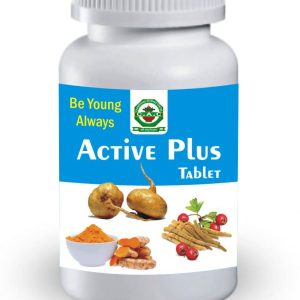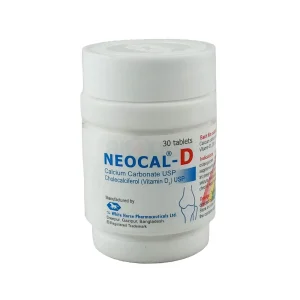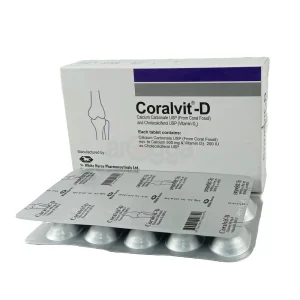-
Active Plus Tablet
Beta carotene of this tablet is converted to vitamin A (Retinol) when required. Retinol has several biochemical functions e.g. on retina, growth, tissue differentiation, immunological response. It has also some anti-cancer activity.
Vitamin C is the most powerful reducing agent known to be present in living tissues. Vitamin C deficiency produces scurvy. It is a cofactor in numerous biological processes. Vitamin C and molecular oxygen are essential for the conversion of proline to hydroxyproline, dopamine to noradrenaline . Vitamin C is also essential for the synthesis of adrenal steroid hormones. Vitamin C is important in the defense against infection and studies shown that vitamin C is important for the normal functioning of T-lymphocyte and leukocyte. Ascorbic acid has some antiinflammatory activity and protects cells against oxidation of essential molecules. In high doses, (1-2 g daily) ascorbic acid increases iron absorption.
vitamin E seems to be as a defense against oxidative stress and lipid peroxidation. In most cell membranes there is one molecule of tocopherol for every 1000 lipid molecules. Tocopherol mops up peroxide radicals and then needs a supply of reduced hydrogen to restore the steady-state situation. This is usually supplied by ascorbic acid or reduced glutathione.
-
Neocal D Tablet
This is the preparation of Calcium Carbonate and Vitamin D3 (Cholecalciferol). Calcium is necessary for many normal functions of our body, especially bone formation and maintenance. Vitamin D3 helps for the absorption & reabsorption of Calcium. Vitamin D3 also stimulates bone formation. Clinical studies showed that Calcium and Vitamin D3 all together helps in bone growth, and in prevention of osteoporosis & bone fracture.
-
Coralvit-D Tablet
Thiazide diuretics reduce the urinary excretion of calcium. Due to increased risk of hypercalcaemia, serum calcium should be regularly monitored during concomitant use of thiazide diuretics. Systemic corticosteroids reduce calcium absorption. During concomitant use, it may be necessary to increase the dose of calcium tablet. Simultaneous treatment with ion exchange resins such as cholestyramine or laxatives such as paraffin oil may reduce the gastrointestinal absorption of vitamin D. Calcium carbonate may interfere with the absorption of concomitantly administered tetracycline preparations. For this reason, tetracycline preparations should be administered at least two hours before, or four to six hours after, oral intake of calcium. Hypercalcaemia may increase the toxicity of cardiac glycosides during treatment with calcium and vitamin D. Patients should be monitored with regard to electrocardiogram (ECG) and serum calcium levels. If a bisphosphonate or sodium fluoride is used concomitantly, Coralvit-D should be administered at least three hours before the intake of calcium tablet since gastrointestinal absorption may be reduced. Oxalic acid (found in spinach and rhubarb) and phytic acid (found in whole cereals) may inhibit calcium absorption through formation of insoluble calcium salts. The patient should not take calcium products within two hours of eating foods high in oxalic acid and phytic acid.



